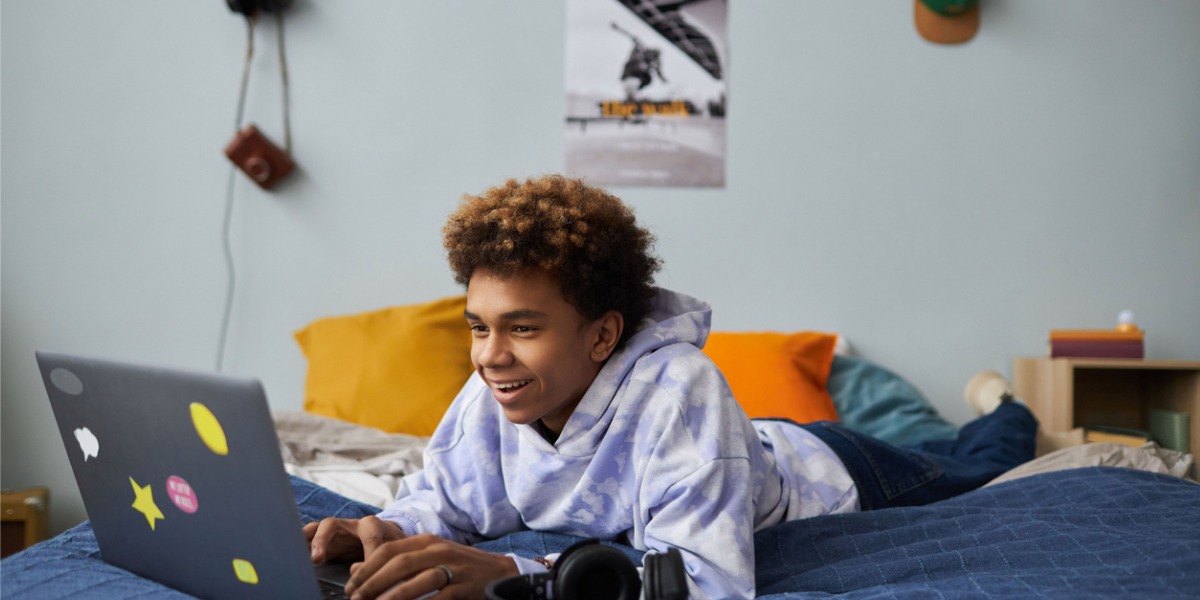Video games get a bad rap: for the most part, parents accept that most children and teens love playing video games and allow them to play, despite warnings about their potential negative impact on mental health.
Research shows excessive screen time – including playing video games – is associated with a wide range of physical, emotional, and psychological problems, including but not limited to:
- Difficulty at school
- Problems managing moods
- Reduced sleep
- Problems with weight
- Low self-esteem
- Body image issues
In addition, excess screen time is associated with reading fewer books, spending less time outdoors, and getting less exercise – all of which can lead to poor physical and mental health.
But what if some types of screen time do the opposite?
What if some video games can improve, rather than degrade, child and teen mental health?
A group of researchers explored that possibility in a new study called “Efficacy of Gamified Digital Mental Health Interventions for Pediatric Mental Health Conditions” published by the Journal of the American Medical Association – Pediatrics.
Video Games and Mental Health: Leveraging What Children and Teens Enjoy
One thing you learn as a parent is that if a child loves something – a show, a sport, a song, a hobby – and you don’t love it, it’s never helpful to show open derision or judgment about the thing they love. Speaking critically about what they’re enthusiastic about without first taking time to understand what they are and why your kid/kids love them can cause more problems than it solves.
If you learn the thing that has their interest is dangerous or inappropriate, then yes, of course, take action. However, if the problem is simply one of taste or personal preference, it’s always best to see these moments as opportunities for contact. Parents can talk to kids about what they like or don’t like, and kids can tell parents what they like, and why.
That’s at the root of the topic here. Over the past twenty years, designers have created video games to help improve child and teen mental health, because they know most children and teens love video games. Think of it as a modern, information-age version of a spoonful of sugar helps the medicine go down. And recently, a group of researchers conducted a meta-analysis of all the available research on these games.
The study, which we introduce above, focused on this central question:
“Given the challenges confronting the accessibility of pediatric mental health care, are gamified digital mental health interventions (DMHIs) effective for treating pediatric anxiety, depression, and attention-deficit/hyperactivity disorder (ADHD)?”
Let’s take a look at how they conducted the research.
Gamified Digital Mental Health Interventions (DMHIs): Video Games for Mental Health Treatment
To explore the research question, the study team analyzed data from 27 random control trials (RCTs) with close to three thousand participants diagnosed with the following mental health/behavioral disorders:
The therapeutic games children and teens played were available in different formats:
- Smartphones
- Computers
- Tablets
- Video game consoles
Games designed to help children and teens with ADHD most often involved racing games with the potential for divided or split attention, but required players to focus on one thing to win. Games designed to help children and teens with depression and/or anxiety often taught therapeutic tools, strategies, and concepts in video game format.
Since all the studies reviewed in the meta-analysis were random control trials (RCTs), they included an experimental group made up of participants who played the games, and a control group made up of participants who didn’t play the games. The outcomes were any changes in ADHD, depression, or anxiety severity in the experimental group, as compared to the control group.
Let’s take a look at what they found.
Therapy via Video Game: Effect on ADHD, Depression, and Anxiety
After gathering all the data and applying statistical analysis to determine which games helped and which games didn’t, researchers identified the following:
- Modest but significant positive impact on ADHD symptoms
- Modest but significant positive impact on depressive symptoms
- Small but nonsignificant impact on anxiety
In addition, researchers noted:
- Studies involving games designed for ADHD played on a computer involved more male participants than female participants
- Games designed for ADHD played on a computer resulted in larger treatment effects than games played on smartphones, tablets, or gaming consoles
- Games for depressive disorders that included preset time limits resulted in larger treatment effects than games with no preset time limits
Here’s how study author Dr. Joseph McGuire, interviewed by journalists at the Johns Hopkins University newsroom, describes the results:
“While the benefits are still modest, our research shows that we have some novel tools to help improve children’s mental health — particularly for ADHD and depression — that can be relatively accessible to families. So if you are a pediatrician and you’re having trouble getting your pediatric patient into individual mental health care, there could be some gamified mental health interventions that could be nice first steps for children while waiting to start individual therapy.”
This is an excellent summary of both the research and how it helps. The data indicated video games likely won’t replace in-person therapeutic interventions, but may form a viable bridge from treatment reluctance to full treatment participation. Which, for children and teens, is an essential transition that can lead to long-term treatment retention, and ultimately, a successful treatment experience.


